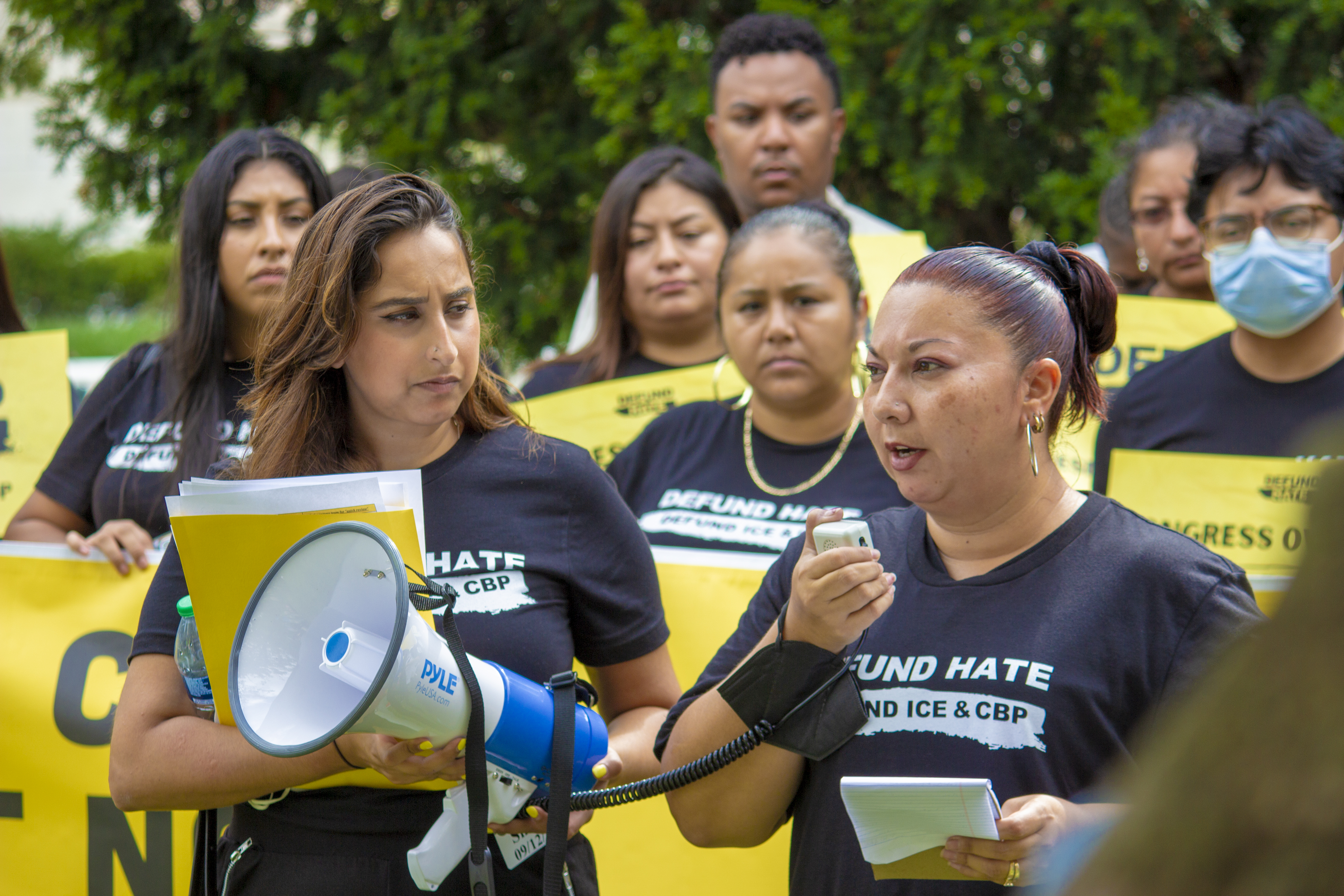
AFSC
Making New Worlds: Pursuing Peace with Justice
The recordings here are available for anyone to view and consider with us these questions:
What does it mean to dismantle systems to create justice? What is the Quaker historical perspective on working for liberation, and what is the vision of contemporary Quaker organizers? How is AFSC working to end injustice and the institutions that perpetuate it—and create alternatives based on care and a solidarity economy?
In these workshops and plenary address, we explored approaches to working toward peace with justice and ways that AFSC and Quakers are striving to build new worlds.
Quakers, AFSC, and abolition: Then and now
Presenters include: historians Marcus Rediker and Katharine Gerbner, formerly incarcerated long term AFSC volunteer Bob Eaton, formerly incarcerated Quaker abolitionist Khary Bekka and one of the founders of the Quaker abolition network, Jed Walsh. Moderated by Lewis Webb and Lucy Duncan
We examine the powerful witness of earlier Friends, the reality of Quaker complicity with slavery and the creation of the penitentiary system, and AFSC’s 1978 minute on penal abolition. We will also hear from contemporary Quaker abolitionists and AFSC staff who will tell their stories and reflect on what this means for Quakers and AFSC today.
Additional resources:
#FreeThemAll: How we are living into the call to free folks in the context of COVID-19 and beyond
Presenters: Adriana Jasso, Demetrius Titus, and Layne Mullett
In this pandemic, the dangers of incarceration continue to multiply exponentially, making every cell and cage a potential death chamber. Immigration activists, prison abolitionists, and those calling to defund the police are organizing across the country under the call to #FreeThemAll. Together, we're calling for the immediate release of people from behind bars as we continue to work for a future without incarceration. Learn more about the campaign and how you can get involved.
Additional resources:
Pursuing freedom for Palestine: A campaign for Palestinian children’s rights
Presenters: Jennifer Bing and Zeina Ashrawi Hutchison
In 2015, AFSC and Defense for Children International-Palestine launched the No Way to Treat a Child campaign to challenge the Israeli occupation of Palestinians by exposing the systematic ill-treatment of Palestinian children in Israeli military detention. Since then, the campaign has mobilized Quakers, other faith communities, and many others across the U.S. to urge Congress to work to stop the detention of Palestinian children and end the occupation.
Additional resources:
Global migrant justice: Manifesting the joint Quaker migration statement
Presenters: Kristin Kumpf, Marianne Elias, Pauline Muchina, Douglas Juarez, and Lis-Marie Alvarado.
AFSC worked with Friends Committee on National Legislation (FCNL), Quaker United Nations Office (QUNO), the Quaker Council for European Affairs, and Britain Yearly Meeting to write a joint Quaker statement on migration justice foregrounding Quaker principles and honoring the human rights of all people. Learn about the statement and the ways that AFSC is taking action that you can join for global migrant justice.
Restorative Justice: What does it look and feel like in our communities?
Presenters: Fatimeh Khan and Joshua Saleem
If we want to live into a paradigm beyond the punitive system we currently inhabit, it is essential that we learn new ways to address harm, hold people accountable for the harm they cause, and promote healing. In this session, we present ways that such practices are being used and can be instituted, providing a vision and way forward toward a transformed justice system.
Making new worlds: Creating a society based on care and a solidarity economy—what to divest from and to invest in?
Presenters: Rick Wilson, Dov Baum, and Grace Kindeke
Economic inequality causes more deaths worldwide than warfare and other injustices. The gaps in income and wealth have been increasing in the past decade. Greed is a deep cause of so much suffering and causes poverty. In this workshop consider with us what kind of world we are striving for, ways we can help people get the resources they need right now, how to move governments and corporations toward more just policies, and how to build the structural alternatives for a world based on care and solidarity.
Additional resources:
Plenary session on abolition with Nyle Fort
This session was a conversation between Nyle Fort and Debbie Southorn, with song interludes offered by Alexis Joi.
Nyle Fort is a minister, activist, and scholar based in Newark, New Jersey. He has worked in education, criminal justice, and youth development for over a decade in various capacities including: the national director of Communities Against Militarized Police; founder and co-director of the Organizing Praxis Lab at Princeton University; and lead trainer at Momentum, an activist incubator that builds large-scale social movements in the United States and around the world. Nyle’s activism involves local, national, and international efforts. In 2014, after the tragic shooting death of Michael Brown by police officer Darren Wilson, Nyle traveled to Ferguson, Missouri to help build the Movement for Black Lives. Upon his return home, Nyle created “Last Words: a liturgy commemorating the last words of Black people killed by police and vigilantes.” He also established Newark Books and Breakfast, a cultural and political education program that provides free books and breakfast to local youth and families.
Additional resources:
Program worship speaker Esther Mombo
Dr. Esther Mombo, program committee clerk of the Africa region, discusses what liberation looks like in AFSC’s work in Africa.